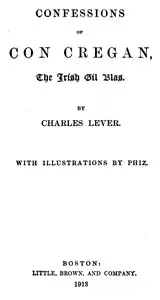"The Tales of the Heptameron, Vol. 1 (of 5)" by Marguerite, Queen of Navarre, is a collection of short stories likely written in the early 16th century. The work consists of a series of narrative tales, often revolving around themes of love, betrayal, and morality, showcasing the complexities of human relationships. The overarching context is set against a backdrop of folk tales and moral lessons that reflect the societal norms and issues of the period. The opening of the narrative serves as a prelude to the tales that follow and provides context about the life of Margaret herself and the historical background of her era. After a preface detailing the history of the manuscript and its previous editions, the book promises an array of stories filled with intrigue and personal conflict. Notably, the first tale introduces a tragic narrative involving a proctor who is led astray by his wife, setting the tone for the exploration of themes such as infidelity and revenge that are prevalent throughout the collection. As the story unfolds, it becomes clear that these tales are not only entertainment but also serve as social commentary. (This is an automatically generated summary.)

The Tales of the Heptameron, Vol. 1 (of 5)
By Queen Marguerite
Followed by vol II PG#17702
Marguerite de Navarre, also known as Marguerite of Angoulême and Margaret of Navarre, was a princess of France, Duchess of Alençon and Berry, and Queen of Navarre by her second marriage to King Henry II of Navarre. Her brother became King of France, as Francis I, and the two siblings were responsible for the celebrated intellectual and cultural court and salons of their day in France. Marguerite is the ancestress of the Bourbon kings of France, being the mother of Jeanne d'Albret, whose son, Henry of Navarre, succeeded as Henry IV of France, the first Bourbon king. As an author and a patron of humanists and reformers, she was an outstanding figure of the French Renaissance. Samuel Putnam called her "The First Modern Woman".


















